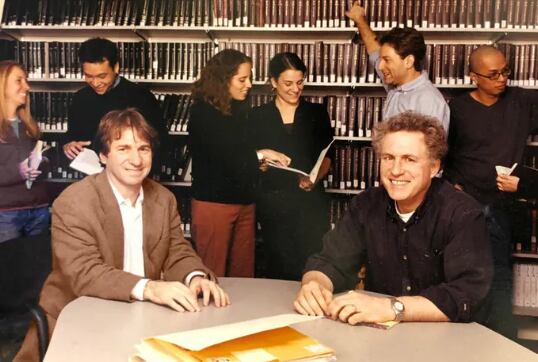“Don’t let the sun go down on me” (“Don’t Let the Sun Go Down on Me”), Archie Williams sang before the audience of one of the most watched game shows on American television, America’s Got Talent. And Elton John’s song launched him to unprecedented popularity not only because of his amazing tenor voice and performance, but because the lyrics also reflected Williams’ dramatic story of perseverance in the face of the injustice of spending 37 years in a Louisiana prison. considered the bloodiest of USAfor a crime he did not commit.
in March 2019a DNA test (which did not exist at the time of the conviction, and which the State later refused to apply in Williams’ case for years) allowed his release after identifying the true culprit of the rape and serious stab wounds against a 30-year-old white woman from Baton Rouge, Louisiana. The victim had mistakenly singled out Williams in a series of photographs presented to him.
“I am an Elton John fan. His music always moved me. But that song in particular, ‘Don’t Let the Sun Go Down On Me’, became a kind of prayer for me. I used to listen to it in prison, and the lyrics would come back to me whenever I needed them,” Williams told THE NATION in a Zoom interview from the United States.
prisoners by mistake
The Williams case also brought to light a much broader reality. According to the 2019 annual report of the National Registry of Exonerations, the percentage of wrongful convictions in the United States is between 2% and 10%. So, being the country with the highest number of prisoners per capita (639 per 100,000 inhabitants, followed by El Salvador with 562 per 100,000), it is estimated that are behind American bars for a crime that between 46,000 and 230,000 people did not commit.
“The American judicial system does not work well. Close 95% of state and federal criminal convictions are based on guilty pleas. To save all the cost of a judicial process or not risk sentences that can be six or seven times higher, totally innocent people end up pleading guilty,” he told THE NATION Vanessa Potkinthe lawyer who achieved the release of Williams and who for 21 years has been a member of Innocence Project.
This organization, which was founded in the United States in 1992 by lawyers Barry Scheck and Peter Neufeld, is now in 13 countries, including Argentina, and works on the release of innocent prisoners with firm sentences, basically appealing to the application of DNA tests. Since its creation in 1992, The Innocence Project achieved the exoneration of 375 people in the United States, including 21 of them released from death row. Of those exonerated, 61% were Black and 8% Latino.
“In prison I met many people who were imprisoned just because of their skin color. Now I would like to be able to work on his release, but there is not always DNA evidence to reverse the conviction, ”explained Williams, who at times broke down in his account to THE NATION and then took a deep breath to move forward. “No hard feelings”, said.
a neighborhood boy
Williams recalled that in the 1970s he grew up in Baton Rouge with so many other kids from a black neighborhood, until at age 12 he escaped from the police for the first time, but for the wrong reason. “He was singing in the street in front of a group of friends when an agent approached us, and instinctively, I ran towards my house to hide”, he pointed. But the policeman, who had heard him sing, went to look for him at the family home to offer him to join a musical band and give concerts at clubs in the area. “It was my first income as a singer and they even bought me a suit so that I could present myself well dressed on stage”, he recalled.
But her story changed dramatically in 1982, when she was 22, after a neighborhood rape and stabbing. He was arrested though none of his fingerprints were found at the crime scene. The only evidence the court had was that, despite the fact that the victim had not identified him in the first two series of photographs presented to him, he pointed him out in the third – official data indicates that in the United States 31% of convictions misidentifications arise from misidentifications. Williams was sentenced to life in prison, without the right to parole, in the gloomy Angola penitentiary in Louisiana.
“In that prison You always have to walk around with a hidden knife in order to be respected. And I was then like a person divided in two. A part of me was a would-be assassin with a knife at hand. And, on the other hand, I began to have the impulse to approach the Bible. He had entered prison with a sixth grade pass and read very poorly. One night, when the security guard came by on his rounds and turned on the lights, I fell to my knees and begged God: ‘Teach me to read!’ When I then sat on my bed and opened the Bible, it was as if scales had fallen from my eyes and suddenly I read with a speed that I had never had before. Since thennobody helped me as much as God to survive in prisonWilliams recalled.
success and fame
Behind bars, the convict watched the program America’s Got Talent and dreamed of one day being able to sing on that stage. After his release on March 21, 2019, he began preparing for that goal, which he finally achieved a year later.
On the day of the show, when asked to introduce himself by show creator and jury member Simon Cowell, Williams, inexperienced in front of the camera, first nervously touched his face, took a deep breath and blurted out a phrase learned from memory that provoked gestures of surprise in the audience. “I have just been incarcerated for 37 years for a crime committed by someone else,” said.
His life story and then his fabulous performance brought the entire audience to a standing ovation, with many, including members of the jury, tearing up. The next day Elton John himself called him to invite him to sing at one of his concerts, an offer that was put on hold due to the pandemic. But that year, Williams was a finalist in the pageant.
Vanessa Potkin pointed out that the Innocence Project organization, in addition to working with individual cases, promotes a modification of the North American justice system that currently hits especially blacks and Latinos.
“I believe that our society would not tolerate the conviction of innocents if the majority of the people affected were middle class people, or white population. Immediately there would be a government action, and a state body would be formed to study the situation, as happens, for example, every time there is a plane crash. But it is not what happens with innocent prisoners, ”he reflected.
Meanwhile, Williams told THE NATION that his main project at this time is to collaborate in the release of other innocent comrades he met in prison.
The ex-con compared his own wrongful imprisonment and prison experiences to the biblical story of Joseph, the character from the Old Testament that his brothers sold to Egypt, where he became the favorite of the pharaoh, and ended up helping his whole family in times of difficulty. Making the words of the Bible character his own, Williams concluded: “They took me to jail to do me harm, but God turned everything for my good, and preserved my life”.
By Ruben Guillemi
Source: Elcomercio

:quality(75)/cloudfront-us-east-1.images.arcpublishing.com/elcomercio/3EVCZFIROFDSPIXHSWSNVKR3M4.PNG)







